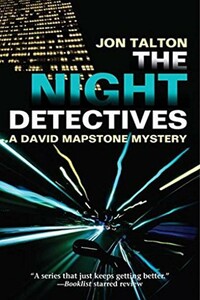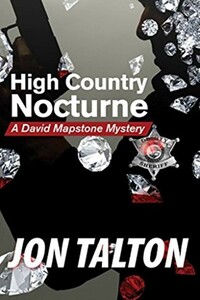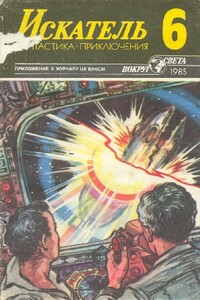Gretchen followed me as we tracked back the way we came, then turned again and followed the passage to where the skeletons were found. Now it was just a hole in the wall: bones, fabric, bricks, dirt-everything had been photographed, diagrammed and hauled away for more tests. The crime lab could do things today we didn’t even dream of when I went through the academy in the mid-1970s.
“This is where they were found?” Gretchen asked.
It jarred me a little, this reminder that those bones were a “they.” They once had eyes that saw and cried. They had parents, and a grandfather, who grieved for them. I nodded and played the flashlight around in the little compartment inside the wall. The space inside was maybe a foot deep and three feet wide and high, no larger. It really looked like a careless bit of workmanship: the far wall inside appeared to be dirt. Whoever built the basement didn’t extend the brick all the way into the hard soil.
“Andrew and Woodrow Yarnell,” Gretchen said softly. “They were four years old when they were kidnapped. Taken from their grandfather’s house. Never found alive again. And all this time, they were right here.”
The light bounced heavily off the brick. Winston Churchill did brick masonry to relax, but I didn’t know beans about it. The bricks in this wall looked a little newer than the ones down the passage. Maybe. The mortar was crumbling. It would make sense: Jack Talbott walled them in and re-laid the bricks hastily.
“Do you think they were alive when he put them in there?” Gretchen asked.
“It’s hard to know.” I hesitated telling more to a civilian. Talbott had been found with the twins’ pajamas. So maybe they were murdered immediately and the ransom demand was a ploy. That was almost a comforting scenario, considering the scraps of rope and leather that had been found. Those might mean the little boys had been tied up and walled in while still alive, without even a blanket against the cold desert night underground. I kept it to myself.
I tried to stand upright and almost knocked myself in the head. “The other thing I can’t get out of my head is this pocket watch we found. Why would it be there?”
“Well, wristwatches didn’t come into widespread use until after World War I,” Gretchen said. “So there were probably lots of pocket watches still in use in 1941.”
“Right, my grandfather loved his. His father gave it to him. And railroad men used them, too. But…” I stared out at the blackness of the passage. You would never find your way out without a flashlight. “But why would two four-year-olds have a pocket watch? Could they even tell time?”
“I see what you mean.”
“And if this Jack Talbott, the kidnapper, was after a hundred grand of Yarnell money, why wouldn’t he have taken the watch, too? It looked gold.”
She moved toward me and took my hand. “David, I need to get out of here. It’s creeping me out.”
We went back out the way we came, Gretchen holding my hand tightly. I helped her back up the ladder and then started up myself. The rungs were slippery and cold. I felt an involuntary chill wrapping around my back, a sense of climbing out of a black place where murder had lived undisturbed for nearly sixty years, a sense of not wanting to look back down the ladder behind me. I stepped onto the hard concrete of the main room and had forgotten about the shooting pain in my ankle.
“Sorry,” she said when we were out on the street again. She wiped each cheek. Her eyes were red. “Sorry.”
“Don’t worry.” I patted her shoulder. “It’s pretty intense. I shouldn’t have taken a civilian down there.”
No,” she said, a marked steeliness in her pleasant voice. “I wanted to see.”





